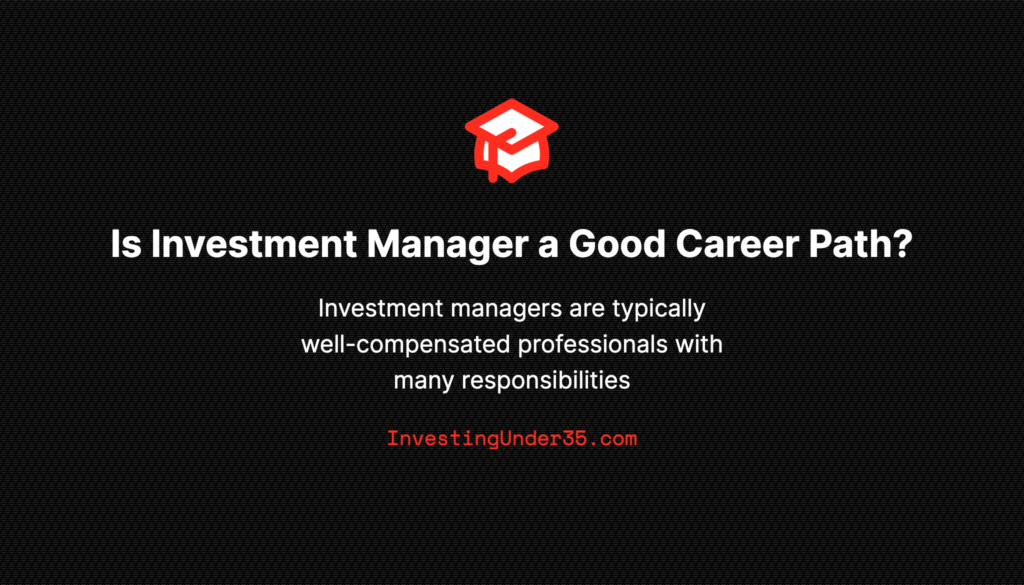Investment managers are typically well-compensated professionals with many responsibilities.
An investment manager’s salary depends on the type and size of the firm they work for, as well as their own experience and skill set. In general, salaries range from $50K to $150K per year.
Salary is also tied to compensation packages that include bonuses and incentives. Some firms offer 401(k) plans or health insurance benefits in addition to base pay; others provide additional perks like tuition reimbursement or paid time off for continuing education courses.

It’s a highly competitive field and you’ll have to get creative to get your foot in the door.
If you’re considering a career as an investment manager, you should understand that it’s a highly competitive field. The market is dynamic and new opportunities are coming and going frequently. As an investment manager, you will have to be flexible enough to relocate across the country or even around the world if it means getting your foot in the door at a top firm.
You’ll also want to make sure that your resume reflects your ability to work with people from all backgrounds. In recent years there has been a growing trend towards hiring from a diverse pool of candidates which means one thing: if you’re not open-minded about working with people who aren’t like yourself, then this might not be the right job for you!
The work is very stressful and it can cause a lot of problems with time management, work-life balance, and mental health.
You might be wondering whether investment manager is a good career path. The answer is yes; but it’s important to understand that the work can be very stressful and it can cause problems with time management, work-life balance, and mental health.
The stress comes from the high-stakes nature of the job. As an investment manager you’re responsible for making decisions about your clients’ money—decisions that could affect their futures in big ways. If you make bad investments or otherwise fail to perform well in your role, there could be serious consequences for both yourself and your client. On top of this pressure there is also pressure from your employer: if they don’t think that your performance meets their expectations then they may not keep you on as an employee (or they may even fire you).
If you fit the role, it can be a great career, but it’s not an easy one.
If you fit the role, it can be a great career, but it’s not an easy one.
InvestingUnder35
Investment managers are excellent at what they do. They’re business leaders who use their financial expertise to manage money and make sure that their clients are getting the best returns possible. However, if you’re interested in becoming an investment manager or even just learning more about this specific industry, there are some things you should know first.

